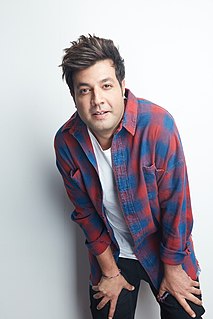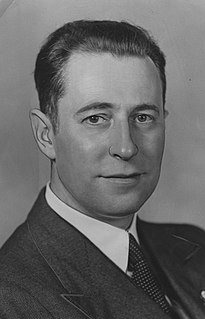A Quote by Varun Sharma
If 'Sajjan Singh Rangroot' showed seriousness through the First World War, 'Carry On Jatta 2' had a great dose of comedy.
Quote Topics
Related Quotes
I was after a set of pictures, so that when people looked at them they would say, ‘This is war’-that the people who were in the war would believe that I had truthfully captured what they had gone through I worked in the framework that war is horrible. I want to carry on what I have tried to do in these pictures. War is a concentrated unit in the world and these things are clearly and cleanly seen. Things like race prejudice, poverty, hatred and bigotry are sprawling things in civilian life, and not so easy to define as war.
We are constantly trying to cope with what our fathers or our grandfathers did. I wrote the book 'Great War of Civilization,' and my father was a solider in the First World War which produced the current Middle East - not that he had much to do with that - but he fought in what he believed was the Great War for Civilization.
Both of my grandfathers fought in the Second World War, and my great-grandfather died at the Somme in the First World War. I never truly believed that the War just finished and everyone was happy-clappy, brought out the bunting, and felt everything was okay again. That's definitely not my impression of the fall-out of war.
... there was the first Balkan war and the second Balkan war and then there was the first world war. It is extraordinary how having done a thing once you have to do it again, there is the pleasure of coincidence and there is the pleasure of repetition, and so there is the second world war, and in between there was the Abyssinian war and the Spanish civil war.
Throughout human history, in any great endeavour requiring the common effort of many nations and men and women everywhere, we have learned - it is only through seriousness of purpose and persistence that we ultimately carry the day. We might liken it to riding a bicycle. You stay upright and move forward so long as you keep up the momentum.
Dachau has been my own lifelong point of no return. Between the moment when I walked through the gate of that prison, with its infamous motto, 'Arbeit Macht Frei,' and when I walked out at the end of a day that had no ordinary scale of hours, I was changed, and how I looked at the human condition, the world we live in, changed ... Years of war had taught me a great deal, but war was nothing like Dachau. Compared to Dachau, war was clean.
World War Two was a world war in space. It spread from Europe to Japan, to the Soviet Union, etc. World War Two was quite different from World War One which was geographically limited to Europe. But in the case of the Gulf War, we are dealing with a war which is extremely local in space, but global in time, since it is the first 'live' war.




































